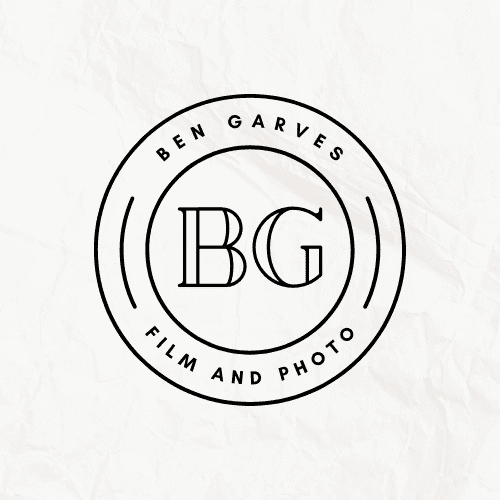Your cart is currently empty!
ADAPT: Inclusion, Hard Work, and Hope
Adapt is a feature-length, multiple award-winning documentary from rookie director Ben Garves.
Follow the deeply-emotional journey of ten athletes with neuromuscular disorders and amputations competing at the CrossFit Games.
Through a global pandemic, indefinite closures, the fight for social justice, and changes of leadership, the CrossFit community was not exempt from a single challenge the world faced in 2020.
CrossFit, in both the sport and the fitness regimen, employing an estimated hundreds of thousands of coaches, athletes, entrepreneurs, and employees in associated businesses, and 15,000-plus gyms across the world, would be forever defined by the actions it took as it picked itself up, dusted itself off, and returned to the bar for another rep.
It was this very work ethic, as a philosophy, ingrained in the community from the early days of the brand, which would nurture something neglected, foster something beautiful, and change the public perception of what CrossFit is, who belongs within the doors of a gym, and what CrossFit means for the next generation.
ADAPT.
Follow on YouTube for the latest updates and trailers.
A letter from the director to film festivals and distributors:
Hello,
I truly appreciate you taking the time to review Adapt: Inclusion, Hard Work, and Hope. My name is Ben Garves, and I’m a New York-based first-time filmmaker who set out last year to create a solo feature-length documentary.
ADAPT follows ten adaptive athletes around the CrossFit Games, which opened its doors in 2021 to their divisions for the first time. An “adaptive” athlete is one who needs some form of modification to the competition in order to accommodate their abilities, like amputees and athletes with neuromuscular and developmental issues or congenital defects.
Here’s a brief introduction to three of these athletes:
Charlotte “Char” Coburn is a former bodybuilding competitor who’s fallen in love with the sport of competitive fitness and the community which rallies around her at the gym. She was born with a congenital defect which under-developed her left hand. While she’s relatively new to the sport, she qualified top-five in the world in 2021 and earned an invite to the CrossFit Games.
Brett Horchar was diagnosed just a few years ago with multiple sclerosis. Overnight, he went from being an ultra-fit gym coach to being unable to walk. His journey has seen him rebuild control over his body, and he’s now competing with the fittest athletes in the world. Since filming ADAPT, he’s gone on to win back-to-back CrossFit Games titles.
Sylvania Harrod is a disabled veteran. Diagnosed with chronic lyme disease, even the best days he has are restricted by pain and fatigue symptoms similar to the flu. He placed third in the neuromuscular division at the CrossFit Games in 2021, making him the most decorated Black athlete in the history of the sport.
CrossFit has very much been an embattled brand, from fighting a stereotype around high injury rates to its (let’s be honest…valid) reputation for having cult-like followers. The CrossFit Games, an annual competition seeking to crown the “Fittest on Earth”, has done very little to dispel this. Each year, it tests athletes in everything from heavy olympic lifts and gymnastics movements to paddle boards and trail runs.
The real CrossFit is a brand and fitness methodology attached to 15,000 independent gyms around the globe (more locations than Taco Bell and Wendy’s, combined) and is estimated to employ over 100,000 coaches, trainers, and entrepreneurs. In fact, there are more stories about gym members losing 100-plus pounds at CrossFit gyms than there have been elite competitive athletes in the history of the sport, the result of over 4 million gym goers around the world participating in it.
We don’t hear about it, but the gyms are diverse. Their members are more female (60%) than male. The sport endorsed athletes competing in the division of their gender identity in 2017 and has had equal pay for female athletes since its inception. Their partnership with OUTWOD and the OUT Foundation has focused on a gender and identity-inclusive culture in competitive divisions. Latin America is home to 750 gyms, Asia to 570, and Africa and the Middle East to 400.
In 2020, the CrossFit community rose up to show the world it’s bigger than its reputation. Through a massive exodus and boycott from gyms, members, and athletes alike, it ousted the founder and previous owner for racially-insensitive comments and for a sexist, predatory culture he’d built into the workplace culture. The community was loud and clear: they were bigger than the sport, bigger than the brand, and impassioned to do the work to prove to the world that they’re accepting of all people of all ethnicities, races, backgrounds, and capabilities.
Within months of taking the helm of the business, the new owner and CEO had announced 16 new competitive divisions which would service adaptive athletes. Of those, any division fielding more than 100 competitors in the qualifier would see their top performers invited to the CrossFit Games in 2021.
Included in those divisions were under-served groups, like those with upper and lower-extremity limitations, neuromuscular impairments, low-vision, short stature, seated athletes, and even those with intellectual limitations.
The memory of reading that press release is still vivid in my mind, along with the thought that, “this is a story someone should be sharing with the world.”
I applied for a media pass two weeks out, emailed athletes a week later when I was accepted, packed a camera (and snacks), and the rest is history. Three days, one camera, zero experience, and a year of Googling things later, present “ADAPT”. I can’t possibly be more proud of what this became, especially given the humble roots.
Thank you for listening to my story, thank you for your consideration of ADAPT, and thank you for learning about these incredible athletes and what they’ve worked through in order to share this moment with us.
